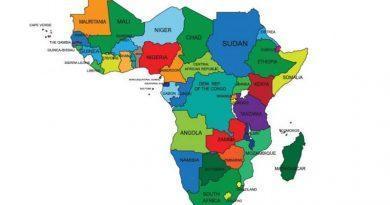Health Alarm: Deadly strain of Mpox Virus on the rise Across Africa
The African continent is witnessing an extraordinary surge in mpox virus cases since the beginning of 2024, with several nations that had previously been unaffected now reporting incidents of the virus, indicating a concerning spread.
The World Health Organization (WHO) has escalated its response to the mpox outbreak to the highest level, necessitating a comprehensive mobilization and enhancement of efforts across the organization. Furthermore, WHO Director-General Dr. Tedros Adhanom Ghebreyesus has convened an emergency committee of experts to assess whether the outbreak qualifies as a Public Health Emergency of International Concern.
African Countries Reporting Mpox Virus Outbreak
Currently, fifteen African nations are reporting mpox virus outbreaks, totaling 2,030 confirmed cases and 13 fatalities this year, in stark contrast to the 1,145 cases and seven deaths recorded throughout 2023. Notably, four countries—Burundi, Kenya, Rwanda, and Uganda—that had previously reported no cases of mpox have begun to document incidents since mid-July 2024.
In the Democratic Republic of the Congo, which accounts for over 90% of the reported cases, a new variant that emerged in September 2023 is now circulating in the eastern region. Neighboring countries Rwanda and Uganda have also reported cases of this new variant, while Kenya has confirmed its presence as well. Investigations are currently underway in Burundi to ascertain whether the reported cases are linked to this new variant.
The foremost objective is to swiftly halt the transmission of the mpox virus. We are collaborating with various partners to assist countries in strengthening outbreak control measures, ensuring that communities play a pivotal role in the ongoing efforts to effectively eliminate these outbreaks, stated Dr. Matshidiso Moeti, WHO Regional Director for Africa.
The list of the fifteen countries in Africa reporting mpox virus outbreak are Benin, Burundi, Cameroon, Central Africa Republic (CAR), Congo, Democratic Republic of Congo (DRC), Egypt, Ghana, Liberia, Morocco, Mozambique, Nigeria, Rwanda, Sudan and South Africa. In 2023, 14,957 cases and 739 deaths (CFR: 4.9%) were reported from seven African Union Member States. This year’s case is a 78.5% increase in the number of mpox cases compared to that of year 2022.
As of July 28, 2024, a total of 14,250 monkey pox virus cases have been documented since the start of this year, comprising 2,745 confirmed cases and 11,505 suspected cases, alongside 456 fatalities, resulting in a case fatality rate of 3.2%. These cases have emerged from ten African Union member states: Burundi (8 cases; 0 deaths), Cameroon (35; 2), the Central African Republic (213; 0), the Republic of the Congo (146; 1), the Democratic Republic of the Congo (13,791; 450), Ghana (4; 0), Liberia (5; 0), Nigeria (24; 0), Rwanda (2; 0), and South Africa (22; 3). This marks a 160% increase in cases and a 19% rise in deaths in 2024 compared to the same timeframe in 2023. Notably, the Democratic Republic of the Congo accounts for 96.3% of all reported cases and 97% of the deaths this year. Furthermore, Chad has reported 24 suspected cases without any confirmed cases thus far.

Mpox Transmission Mechanism
The transmission patterns of monkey pox virus differ across the region, with the emergence of a new variant (designated as clade 1b) in the eastern Democratic Republic of the Congo associated with transmission via sexual contact and significant population movement. In South Africa, the majority of cases are reported among individuals identifying as men who have sex with men. In West and Central Africa, transmission is linked to the global outbreak of 2022. However, additional analysis is necessary to gain a clearer understanding of the transmission patterns to enhance the outbreak response.
The WHO is actively engaged at global, regional, and national levels, collaborating with partners such as the Africa Centres for Disease Control and Prevention to ensure a robust response to the monkey pox outbreak.
Within the African region, the WHO is deploying country teams and experts on the ground to assist national authorities in bolstering critical response areas, including disease surveillance, diagnostic testing, clinical care, and infection prevention and control. The organization is working alongside health authorities to facilitate access to therapeutics, decentralize laboratory services to improve diagnostic capabilities, and intensify efforts to educate communities about the risks associated with the disease.
Field investigations and proactive monkey pox case identification are being strengthened in the countries affected and at risk. The Organization is collaborating closely to improve contact tracing, utilizing insights gained from previous outbreaks to ensure that interventions effectively address and prioritize the needs of key populations. Additionally, WHO is mobilizing financial resources to assist countries in their response to the outbreak.
WHO is progressing with the Emergency Use Listing Procedure, a method designed to evaluate and list unlicensed vaccines, therapeutics, and diagnostics to facilitate their availability during public health emergencies. The Organization is already partnering with countries to formulate their vaccination strategies and plans, aiming to deploy the vaccines as soon as they become accessible. Vaccines represent one of several public health measures employed to manage mpox.
“We warned everyone about it,” said Placide Mbala, epidemiologist at the DRC National Institute of Biomedical Research. “People are very mobile at the eastern part of the country with great connection with neighboring countries. It was just a matter of time to start seeing cases in those neighbor countries.”
WHO is appealing for help after the troubling development, with fears it may be a precursor to a new mpox virus epidemic, just two years after a milder strain spread worldwide. “A further scaling up of the mpox virus response underway in affected countries is urgently needed amid the expanding outbreak,” WHO Director-General Tedros Adhanom Ghebreyesus said in a statement to Science Insider. Tedros noted that the World Health Organization is working with local health officials, the Africa CDC, and international partners to slow down the mpox virus transmission. “But much more funding for a comprehensive response, including for diagnostics, therapeutics, and vaccines, is urgently needed,” he said.
“I am considering convening an International Health Regulations Emergency Committee to advise me on whether the outbreak of mpox virus should be declared a Public Health Emergency of International Concern [PHEIC],” Tedros added. A PHEIC is WHO’s highest level of alarm.

Mpox in the DRC
For several decades, the Democratic Republic of the Congo (DRC) has experienced outbreaks of monkey pox virus, an infectious disease characterized by painful skin lesions and potential lethality, particularly among individuals with compromised immune systems. Historically, the majority of cases were reported in children residing in remote villages, where transmission primarily occurred through contact with rodents. However, this year has seen a significant escalation, with nearly 14,000 cases and 450 fatalities documented, marking a notable shift as sexual transmission among adults has emerged as a prominent factor. The virus has also infiltrated urban regions, reaching Goma, a city with a population exceeding 2 million in North Kivu province, which shares a border with Rwanda. The infection rate is particularly elevated among women engaged in commercial sex work and their male clients.
The variant of the monkey pox virus prevalent in the DRC, referred to as clade 1, has resulted in approximately 3% mortality among those infected over the past year. In contrast, the milder clade 2 variant, which originated in Nigeria in May 2022, has led to nearly 100,000 infections across 116 countries, predominantly affecting men who have sex with men (MSM). This variant has resulted in only 208 reported deaths, yielding a case fatality rate of 0.2%. The implementation of mpox vaccination programs and proactive disease surveillance within MSM communities has contributed to a deceleration in the spread of this variant.
The Africa CDC announced yesterday that it has granted an emergency fund of $10.4 million to assist countries across the continent in enhancing their mpox virus surveillance systems and improving vaccine accessibility. According to their report, there have been 37,583 recorded cases of mpox virus and 1,451 fatalities across 15 African nations from January 2022 until the end of the previous month.
Recently, the Democratic Republic of the Congo (DRC) approved two vaccines for mpox virus and has received 50,000 doses donated by the United States, which remain unused. Preliminary evidence suggests that mpox virusvaccines may be effective even after infection has occurred. To investigate this further, the nonprofit Coalition for Epidemic Preparedness Innovations announced on July 27 that it is collaborating with the Canadian Institutes of Health Research to invest $4.9 million in a clinical trial aimed at testing this hypothesis in the DRC and other African countries.
Mpox Transmission from Animals to humans
Monkey pox virus is transmitted from animals to humans, with cases frequently occurring near tropical rainforests where the virus-carrying animals reside. The disease can also be transmitted between humans through contact with bodily fluids, skin lesions, or mucosal surfaces, such as those found in the mouth or throat, as well as through respiratory droplets and contaminated objects.
The treatment for monkey pox virus patients is supportive and tailored to the symptoms presented. Various therapeutics that may prove effective against mpox virus are currently under development and testing. Prevention and control efforts focus on raising community awareness and educating healthcare workers to prevent infection and halt transmission.



